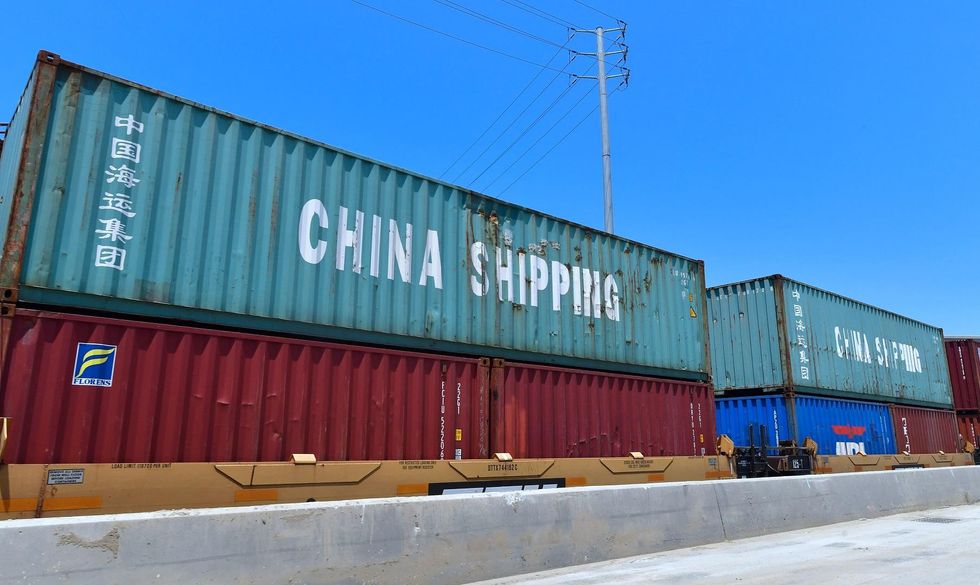In a CNBC interview on Friday, President Donald Trump has said that he is willing to slap tariffs on every last import with China. Trump also said that he was unconcerned about whether or not these tariffs caused a stock market drop, because he was focused on doing “the right thing” for the country.
Here's what Trump said about tariffs on China
After saying that he liked President Xi Jinping of China, but that Chinese trade policies were “very unfair,” Trump went on to describe how far he was willing to take this tariff standoff.
“So I raised 50, we're down 500, now some people would say $375 billion. I'm not talking about million, I'm not talking about pennies, we're down $375 billion. But some estimates would say 507. So it doesn't matter. So, it's in between there, or it's there. We're down a tremendous amount. i raised 50, and they matched us. I said don't match us, you can't match us, because otherwise we're always going to be behind the cue ball.
“Would you ever get to 500," host Joe Kernen asked, referring to the total value of all goods imported from China which was estimated at $505.5 billion last year.
“I'm ready to go to 500,” Trump responded.
“With the midterms on the horizon? What if the stock markets were to go down?”
“Well, I actually think that it's — well, if it does it does. I'm not doing this to do the right thing for our country. We've been ripped off by China for a long time.”
He elaborated on trade deficits some more
“So, Joe,” Trump said to Kernen, “I could have a much easier life if I wanted to do it incorrectly. It would be much easier for me. Sitting here I could just let all of these countries continue onward with these massive deficits. I mean, honestly, I don't want to use the word, because it's a highly respected show, but they are taking advantage of us. Ok, I'll use a different set of words. They are taking advantage of us.”
“It's cable, though, if you really want,” Kernen laughed.
“I know, but it's not as good as the other word, you know what the other word is.”
Trump was likely referring to his previous accusations that China was “raping” the U.S. on trade. Trump followed this by citing trade deficit numbers.
“China, with China, $507 billion a year in deficits. With the EU, $151 billion. With Mexico, $120 billion — Mexico! Who would think Mexico. Mexico's making a fortune. Plus, they have a tax, we don't have a tax.” Trump said he “could go through every country” listing deficits.
What is a trade deficit?
A trade deficit occurs when a country exports more than it imports. For example, using the numbers Trump cited, the United States would have bought $151 billion more from the European Union than the EU bought from the United States. Economists are divided on whether or not this is actually a bad thing. Some experts argue that a trade deficit could be the result of Americans having more disposable income and spending this rather than saving.
The U.S. Census Bureau lists the U.S. trade deficit with China last year as $375 billion. It's not clear where Trump is getting the $507 billion number from (which exceeds the total number of all Chinese imports), but he could be referring to the total trade deficit that the U.S. had with all other nations combined in 2017, which was $566 billion.
He said the stock market could have risen more if not for the tariffs
Trump said that the stock market could jump twice as much as it did since his inauguration if he wasn't focused on tariffs.
“I would have a higher stock market right now. It's almost up nearly 40 percent since the election. It could be 80 percent if i didn't want to do this. But ultimately what I'm doing is making it so it's right. And we'll also start cutting expenses.”
The Dow fell after this interview.




